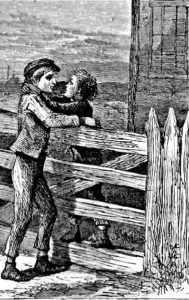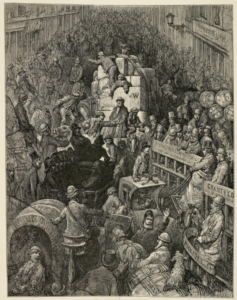Social Class
I have heard a lot about Pride and Prejudice, but this is the first time that I have picked up this book. Reading it for the first time was an experience. It took me awhile to understand what I was reading and what it was about.
One topic that caught my attention was how social class played into this society. The majority of the adults were invested in their social class and took pride in it. Mrs. Bennett wanted her daughters to marry rich. Right in the beginning Mrs. Bennet was excited to here that Mr. Bingley was moving into the estate near them,
“A single man of large fortune; four or five thousand a year. What a fine thing for our girls” (Austen 6).
It shows how social class is important in this society. Mrs. Bennett this whole book wanted her daughters to marry into a wealthy family. Reading this book, it looks like to me that the older generation of Mrs. Bennet & Lady Catherine took social class seriously. Whereas Elizabeth didn’t care, she just wanted to be with someone who has a good personality.
Lady Catherine really showed her social class through her words,
“Not so hasty, if you please. I have by no means done. To all the objections I have already urged, I have still another to add. I am no stranger to the particulars of your youngest sister’s infamous elopement. I know it all; that the young man’s marrying her was a patched-up business, at the expense of your father and uncles. And is such a girl to be my nephew’s sister? Is her husband, is the son of his late father’s steward, to be his brother? Heaven and earth! —of what are you thinking? Are the shades of Pemberley to be thus polluted?” (Austen 346).
Lady Catherine takes pride in her social status and finding out that Elizabeth was “thinking” about marrying Mr. Darcy her nephew. Lady Catherine was upset because the Bennet’s don’t have many connections. Also Mr. Darcy’s friends are wealthy, and they will have strong opinions about the marriage. The underline of this I believe is that Lady Catherine doesn’t want her to marry him because she wants her daughter to marry him. She is using Wickham and Lydia’s elopement to try to scare Elizabeth away. Lady Catherine doesn’t want to be associated with Wickham and if Elizabeth marries Mr. Darcy they will have a connection and she doesn’t want her reputation to be ruined.
Austen did a good job of tying in social class of the older generation into a generation that some just want to marry someone that they love.

